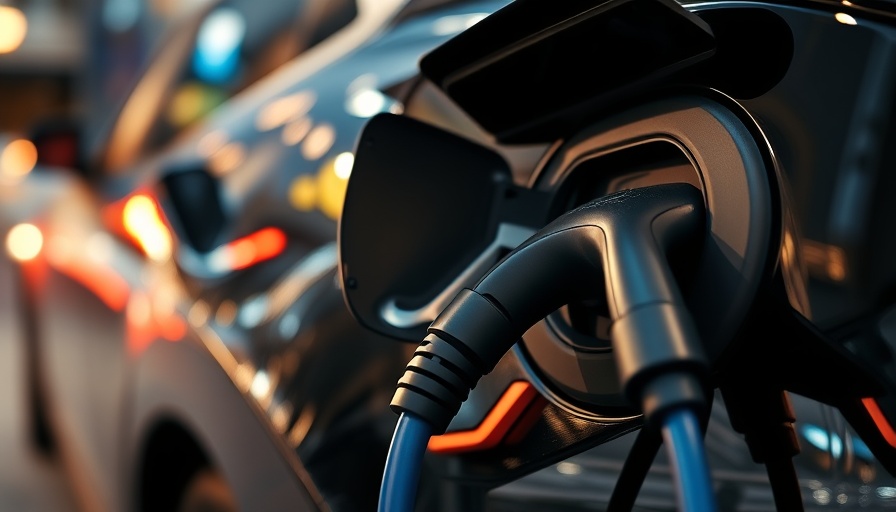
Rising Costs in the Electric Vehicle Landscape
The advent of electric vehicles (EVs) has been largely seen as a win for environmental consciousness and innovation. However, recent legislative proposals are beginning to shed light on potential costs that might weigh heavily on the shoulders of EV owners. A newly proposed federal bill could introduce annual fees for EV and hybrid vehicle owners that significantly exceed average gas tax contributions. In the current climate, as more consumers transition to electric, these fees may not only alter the economics of owning an EV but could also discourage their adoption in the long term.
Understanding the Proposed Fees
Sam Graves, the Chair of the Transportation and Infrastructure Committee, has outlined a bill that suggests EV drivers will face a yearly registration fee of $250 and hybrid drivers will pay $100. This contrasts starkly with the federal gas tax, which is currently around $101 annually for the average American driver consuming 550 gallons of fuel. The proposed fees are designed to replenish the Highway Trust Fund, which has been underfunded, generating an estimated $40 billion over the next decade. However, the added financial burden of higher registration fees may particularly impact those who drive less, such as seniors, who could find their annual cost nearly six times higher than if they were driving a standard vehicle with better fuel efficiency.
Determinants for the Fee Structure
The bill aims to reflect the usage of roads more equitably among vehicle types. However, critics point out an inherent inequality: if gas taxes haven't adjusted for inflation since 1993, why are EV owners being asked to shoulder a disproportionate financial load? EV advocates argue that this bill, while addressing the revenue shortfall for infrastructure, punishes environmentally conscious consumers and undermines efforts to sell more zero-emission vehicles.
Potential Impacts on Consumer Behavior
How will potential buyers react to these fees? Historically, tax incentives have played a crucial role in promoting EV sales. As prices of EVs and hybrid options are already competitive, a further financial hurdle could discourage buyers. As the market moves towards a more electrified future, the balance of incentives and disincentives will directly contribute to buyer sentiment and sales trends in eco vehicles.
A Broader Perspective on Driving Costs
This bill not only affects EV owners but also frames discussions around transportation funding more broadly. With public infrastructure improvements essential for future mobility, the question becomes: How can the infrastructure needs of a growing EV fleet be met without discouraging adoption? Moreover, as suggested in the reported views from environmental advocates, tackling the revenue issues faced by the Highway Trust Fund should be approached with creativity—perhaps through adjusting gas taxes and ensuring all vehicles contribute fairly.
What Could This Mean for Future Policies?
As we move forward, policymakers will need to wrestle with the pressures of fostering an electric vehicle market while ensuring adequate funding for transportation infrastructure. The proposed EV fees represent an attempt to adapt to a changing landscape, yet they may reflect deeper systemic issues in the funding model for road usage.
Finally, it’s important for consumers to stay informed about these developments, as financial implications of such fees become critical in making informed purchasing decisions. Engaging in public discourse and advocating for equitable policies can help shape better future possibilities for all vehicle owners.
 Add Row
Add Row  Add
Add 




 Add Row
Add Row  Add
Add 

Write A Comment